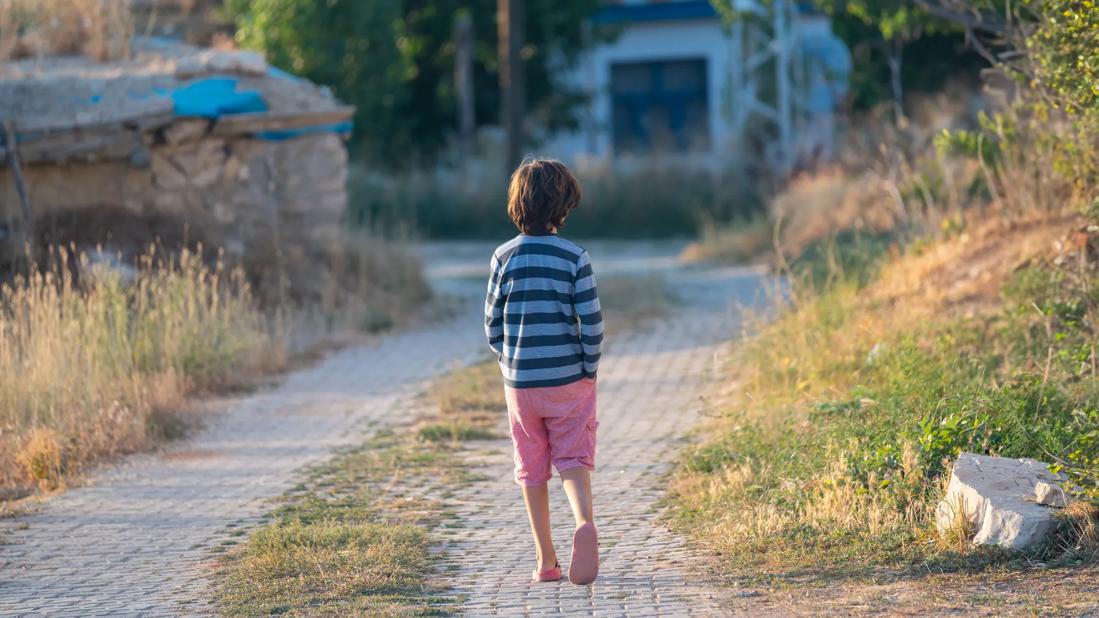Education for medical caregivers and families is part of the package

Nearly half of all children diagnosed with autism spectrum disorder will have an episode of wandering away from a safe environment at some point in their lives. This potential puts the children in danger and can create a chronic psychological burden for parents and other caregivers.
With a few tools and education, pediatric occupational therapists Megan Blake and Carrie Lundenberger knew they could make a difference for the families they cared for. The two received a Cleveland Clinic Catalyst grant to fund Wandering Safety Kits, which were distributed to nearly 1,000 families being cared for through Cleveland Clinic Children’s Hospital for Rehabilitation and other organizations that serve people with autism.
Advertisement
Cleveland Clinic is a non-profit academic medical center. Advertising on our site helps support our mission. We do not endorse non-Cleveland Clinic products or services. Policy
Each kit included:
Although wandering is highly associated with autism, the kits were available to families of any children at risk for wandering. They are already making a difference.
“Subjectively, the parent reports have been amazing,” says Lundenberger. “They’re feeling heard, feeling supported. It's cool when you see the kids see the stop sign and use it. They're wearing the IDs; they are using their door alarms. They're catching these kiddos or getting an alarm before they head out.”
Wandering, also called elopement, occurs whenever a person who needs supervision leaves the space of the caregiving. It can happen in schools, homes or while doing outdoor activities. Mary Wong, MD, a Cleveland Clinic specialist in developmental pediatrics, explains that the internal drive to explore and learn from new experiences is common for all children.
“For most typical children, they also learn that parents stop them from wandering far. They learn the concept of the bogeyman, stranger danger and drowning,” says Dr. Wong. “Children with autism or intellectual disability do not learn as readily from past experience. They need more constant reminders. They do not have the same safety awareness about jumping into bodies of water, for example, or running to the edge of a cliff.”
As common as it is, the therapists say, only one in three caregivers is educated about the risk.
Advertisement
“That's what we both noticed clinically when we were doing evaluations,” says Lundenberger. “Part of an occupational therapy evaluation is making sure the child is safe in their multiple environments. Megan and I have both had patients who have wandered. So that’s where the need started. We wanted to immediately improve the safety of these families and educate them.”
In addition to educating the patients’ family members, the therapists trained their colleagues.
“The education piece was huge with this grant,” says Blake. “It was a mandatory in-service for our Therapy Services therapists to help them think through what they can do for patients even if they don’t have kits to hand out. Now they have this knowledge of where to look online for resources.”
An important part of education is helping caregivers identify a child's triggers. They may be at risk of running when they become frustrated or when they see something they love like a pool or a firetruck, Blake says.
“We work with them to help them identify those triggers,” she says. “Then there are action plans for what to do if something does happen. There's a sheet we fill out together to give to everybody to help you find the child if they do elope. You put a picture of them on it and write about what they like and don't like, so that if someone does find them, they know how to approach them by using their likes and dislikes.”
Ideally, conversations about elopement begin in a clinician’s office. Dr. Wong incorporates the topic in communications with parents.
Advertisement
“During patient appointments, I discuss with parents if there is a risk of wandering,” she says. “If the parents have questions, I try to answer them as best as possible, and suggest practicalities such as installing locks and keeping gates closed.”
She also discusses what schools need in order to keep the patient safe, and shares a comprehensive list of tips and resources with the patients’ going-home instructions.
Wandering kits can support families whether or not their physicians are able to incorporate such counseling.
For therapists or clinicians interested in starting a similar program, Blake and Lundenberger suggest the following.
Look for grants. Cleveland Clinic’s Catalyst grant program rewards employee ideas that are deemed likely to improve the lives of Cleveland Clinic patients within a short time. But resources are available elsewhere. “Anytime you can find an opportunity for a grant, you could make a big impact,” says Blake. The National Autism Association may be able to help make the connection.
Ask questions. Medical professionals should always remember to ask a family whether they have concerns about the patient’s safety: Has the child ever attempted to leave a safe space? Be sure to discuss the meaning of “wandering” and “elopements,” too, since caregivers might not have a shared understanding of the terms in the context of autism or other conditions. It’s best to have informational hand-out available as well.
Referrals. Clinical providers who become aware of a patient’s risk for wandering should refer them to occupational therapy. “There is a diagnostic code for wandering and elopement, and it’s within our practice framework to directly work on this,” says Lundenberger. “Speech and physical therapists can also address it, but OT is typically who the referral is for."
Advertisement
Train other staff members. It’s essential that therapists have the right information so that the kits are easy for families to use appropriately. That’s why training mandatory at Cleveland Clinic. “We wanted ours to be a good grant that was beneficial for these kids and prevent the burden of use from falling on caregivers,” says Lundenberger. “The last thing these family needs is to be handed something and be told, ‘Here, do these things on your own.’ Let's work with them. Let's help. That's definitely our job.”
Advertisement
Advertisement

Center for Autism to provide social, educational and skills-based program for families

Cleveland Clinic Children’s Center for Autism offers comprehensive consultation services

Cleveland Clinic researchers receive $2 million grant from the National Institutes of Health

Realistic scenarios stress importance of soft skills

Findings hold lessons for future pandemics

One pediatric urologist’s quest to improve the status quo

Overcoming barriers to implementing clinical trials

Interim results of RUBY study also indicate improved physical function and quality of life